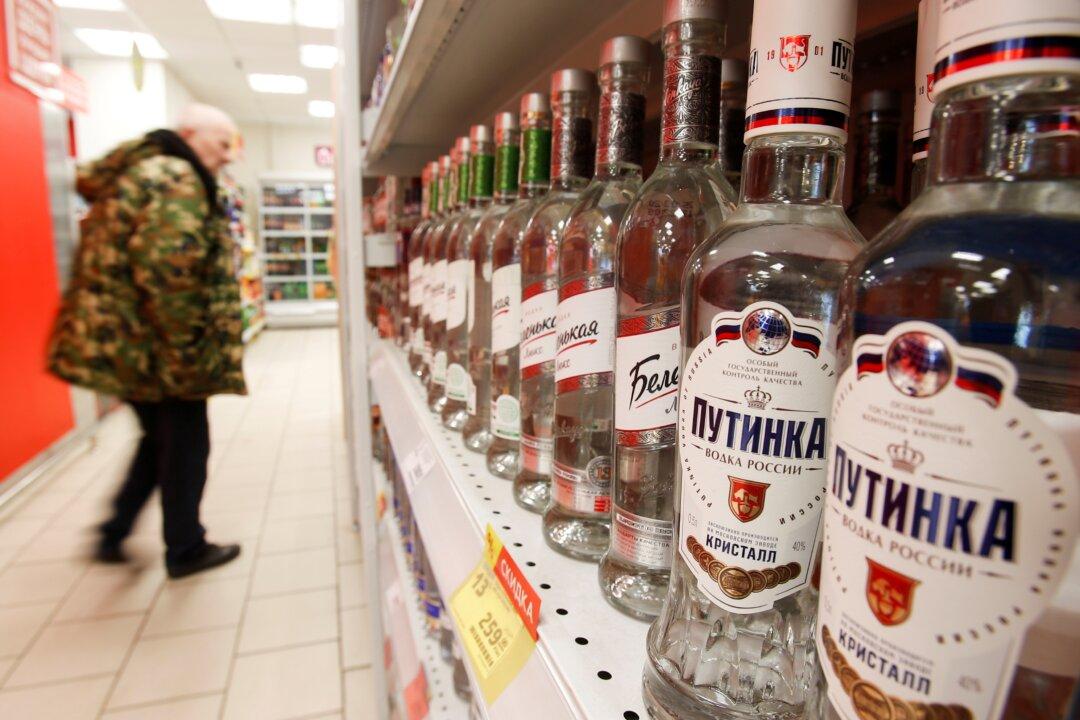MOSCOW—A health official’s warning that anyone getting vaccinated against COVID-19 with Russia’s Sputnik V vaccine should give up alcohol for almost two months has caused a backlash among some Russians who call the request unreasonable.
Anna Popova, head of the consumer health watchdog, told the Komsomolskaya Pravda radio station on Tuesday that people should stop drinking alcohol at least two weeks before getting the first of two injections. They should continue to abstain for a further 42 days, she advised.





